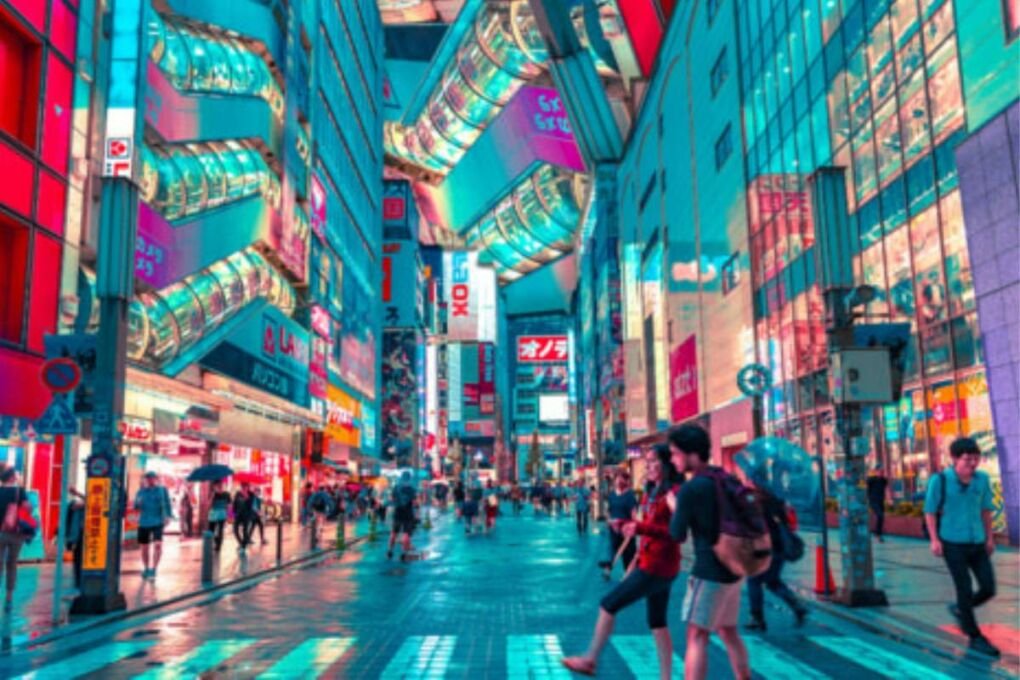In the lively heart of Japan, nestled between towering skyscrapers and tranquil cherry blossom gardens, lies the capital city, Tokyo. This is a city full of ancient traditions and futuristic innovations. Bright neon lights shine in the night while the streets crawl with the aroma of the flavorful foods of Japan.
So, one might wonder: Is Tokyo safe? Well, fear not, as this futuristic neon-lit wonderland is a haven of security and serenity. As an adventurous traveler stepping into this city, you will find yourself wrapped in the homely embrace of a city that takes pride in its safety. Japan is safe for tourists, but is Tokyo?
Why Visit Tokyo?
Tokyo has a lot to offer, from historical culture to delicious cuisine, visiting this city is an experience like no other. Whether you’re attracted to its cherry blossom season or its futuristic technology, Tokyo has an unforgettable travel experience for every type of traveler.
If you’re looking for the right time to visit Tokyo, then late March to early April is perfect. During this time, the cherry blossom season showcases the breathtaking display of pink and white blossoms. Tokyo is home to several beautiful parks, but Shinjuku Gyoen is the best place to see this natural spectacle.
At nighttime, paint the city red as you experience countless Izakaya bars at Omoide Yokocho, found in the Shinjuku district.
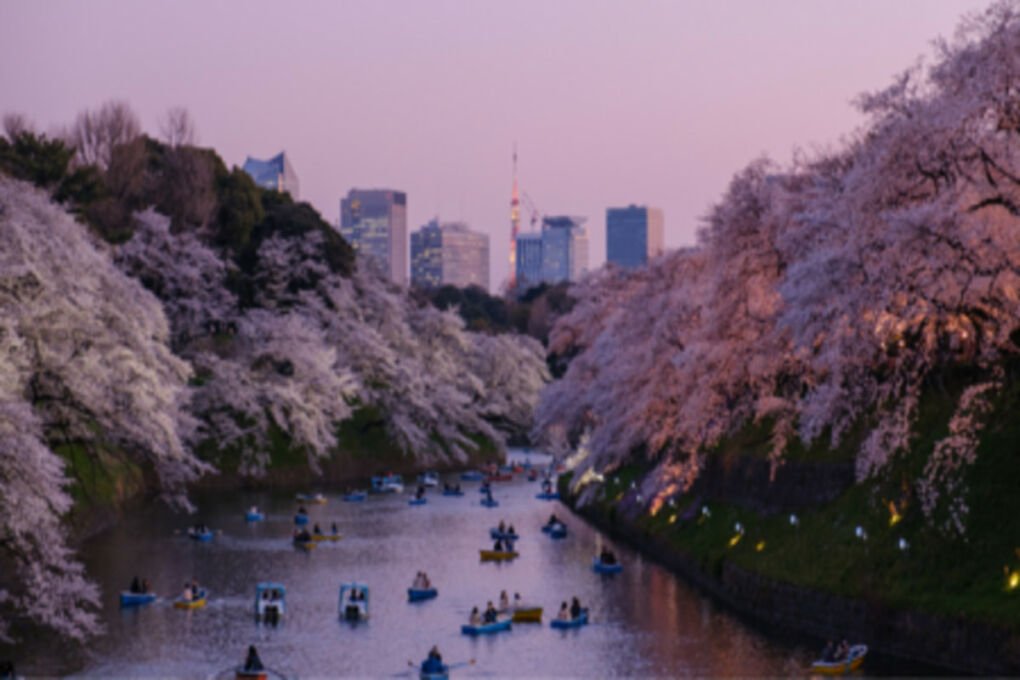
Is Tokyo Dangerous?
Tokyo is considered safe, but some areas experience higher crime rates than others. There’s always so much to do when you’re a tourist, so it’s essential to research security before you travel to a new city.
According to Numbeo, Tokyo scores 20.8 out of 100 on the crime index, which is a low value. The crime that is commonly encountered not only by tourists is petty theft. It usually occurs in places with large crowds and plenty of tourists. Tokyo doesn’t have many dangerous areas; however, there are some places you should be cautious of.
Pickpocketing, bag snatching, and scams also occur in Tokyo. It has been said that the most common scam is the begging monk. Criminals dress up as monks and hang around tourist areas. The monk will offer to bless you and then give you a bracelet. Once you accept the gift, the monk will force you to pay them.
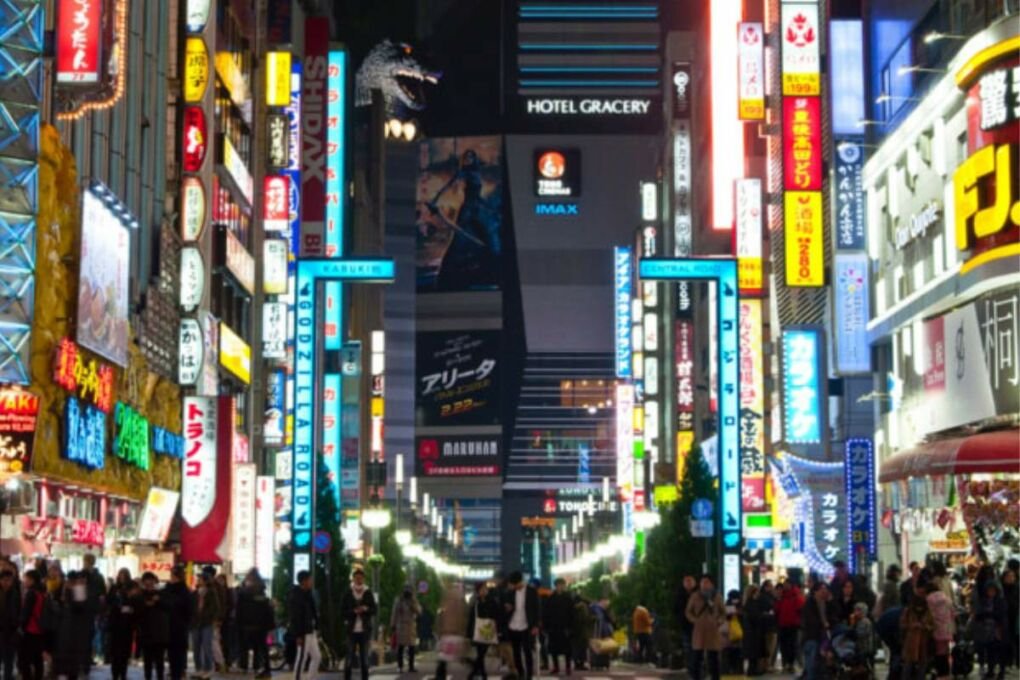
Dangerous Areas in Tokyo
Kabukicho – Greater Red Light District
Kabukicho is one of the biggest red-light districts in the world, and an area where you’ll find sex shops, motels, nightclubs, and prostitution venues. The site is liked very much by tourists because it’s home to thousands of entertainment places like restaurants, karaoke, clubs, and bars.
Sadly, some establishments attract many opportunists and robbers. Kabukicho is the type of area where you’ll see the riot police walking casually on the street. This is to ensure your safety in the area.
Many tourists see no problem going to the restaurants and bars in this area. However, they do avoid living there.
Roppongi
If you are planning a family stay, Roppongi is an area to avoid. Roppongi is a residential area that has high-end offices. It is also a nightlife spot like Kabukicho.
Because Roppongi is a tourist attraction, the danger only comes out at night in bars or nightclubs because people are intoxicated. The area has gained a reputation as a meet-up spot for drug dealers and drug users.
It is important that you practice caution in this area, especially in the nighttime when the atmosphere becomes a little too out of hand.
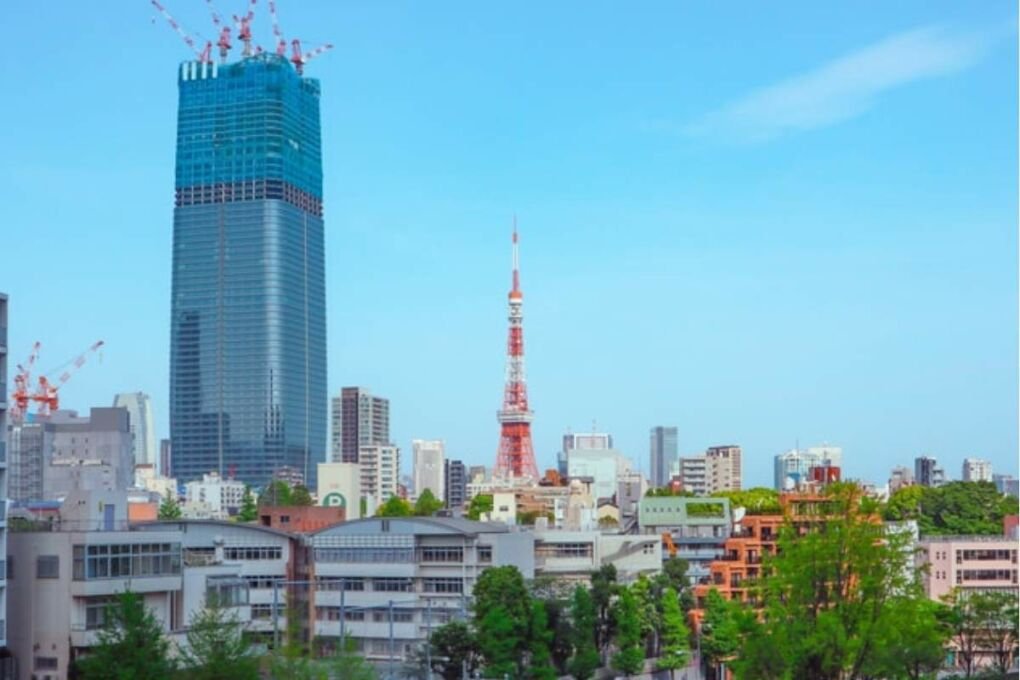
Is It Safe To Live in Tokyo?
The only thing brighter than the city lights of Tokyo is the reassuring glow of security that permeates every corner. The city was ranked in the top 10 as the safest city in the world, as it experiences less than 40,000 criminal incidents per year.
Tokyo has a high police presence throughout the city to help prevent crimes from occurring.
If you run into trouble, look for kōban police boxes, and you shall be assisted.
Tokyo is a beautiful city. Not only does it have the best coworking spaces in Japan for digital nomads, but it also has many iconic neon lights and luxe hotels to stay in for first-time travelers.

Safe Areas in Tokyo
Shinjuku
Shinjuku is popular with tourists as it is located in the heart of Tokyo, providing easy access to all major attractions. It’s the Tokyo you dream about and also see in the movies.
In this neighbourhood, you’ll find Shinjuku Gyoen Park — the Tokyo Metropolitan Government Building. A big advantage of visiting this park is that entry is free, and who doesn’t like free stuff? You also have a stunning view of Tokyo City and Mount Fuji.
Another popular Shinjuku spot among tourists is Kabukicho. This is a more adult-oriented district with a classically fun Vegas style of activities.
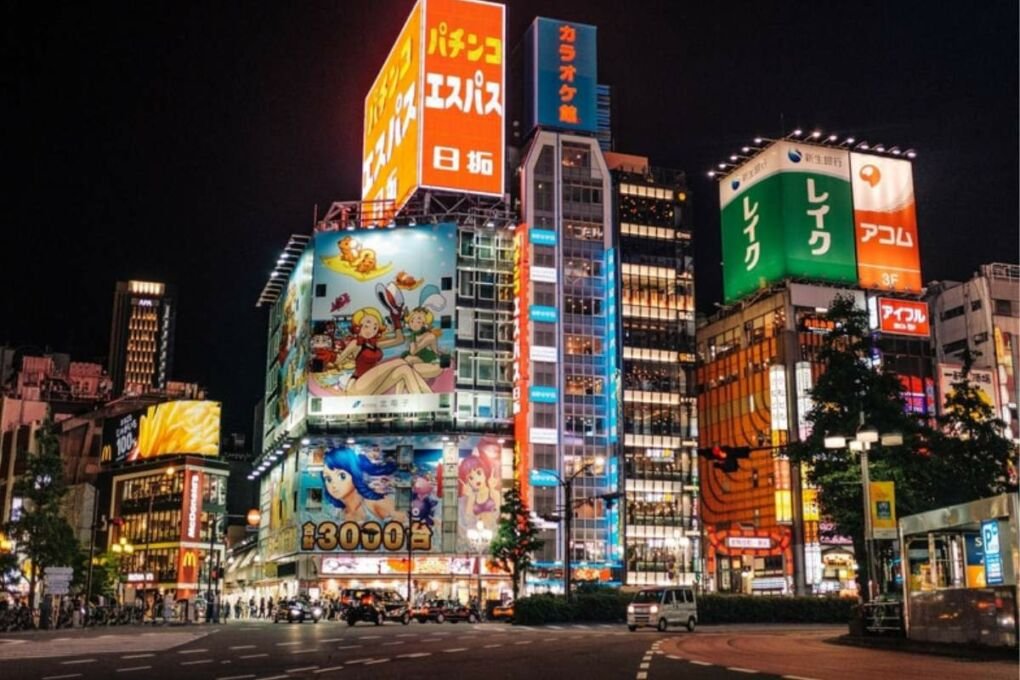
Ginza
If you’re looking for the latest fashion trends in the market and some fine dining, then the Ginza district is the place to be. This glamorous neighborhood is home to dozens of luxury department stores, deluxe boutiques, and high-end restaurants – who wouldn’t want to taste Wagyu?
Ginza is known for its luxury. The only downside to staying in the area is that it’s not located in central Tokyo. However, staying there wouldn’t be an inconvenience. You’d just have to spend more time commuting than you would if you had stayed in the city center.
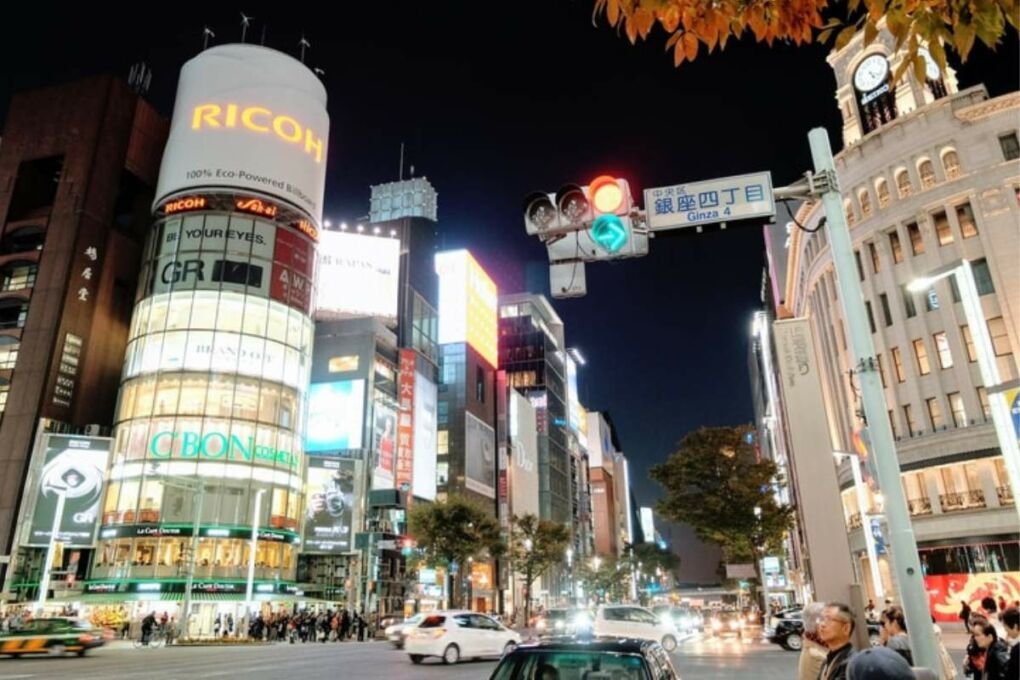
Odaiba & Tokyo Bay
Odaiba is one of the best places to stay, especially when traveling with children. It is an artificial island that connects to Minato by the Rainbow Bridge that has various attractions for families, from the Disney resort to its entertainment centers.
Tokyo Bay is a major hub with six ports with plenty of activities to keep you busy. It is surrounded by many entertainment areas and shopping places. It is considered the city’s playground as there is so much to do, from amusement parks to live music venues.
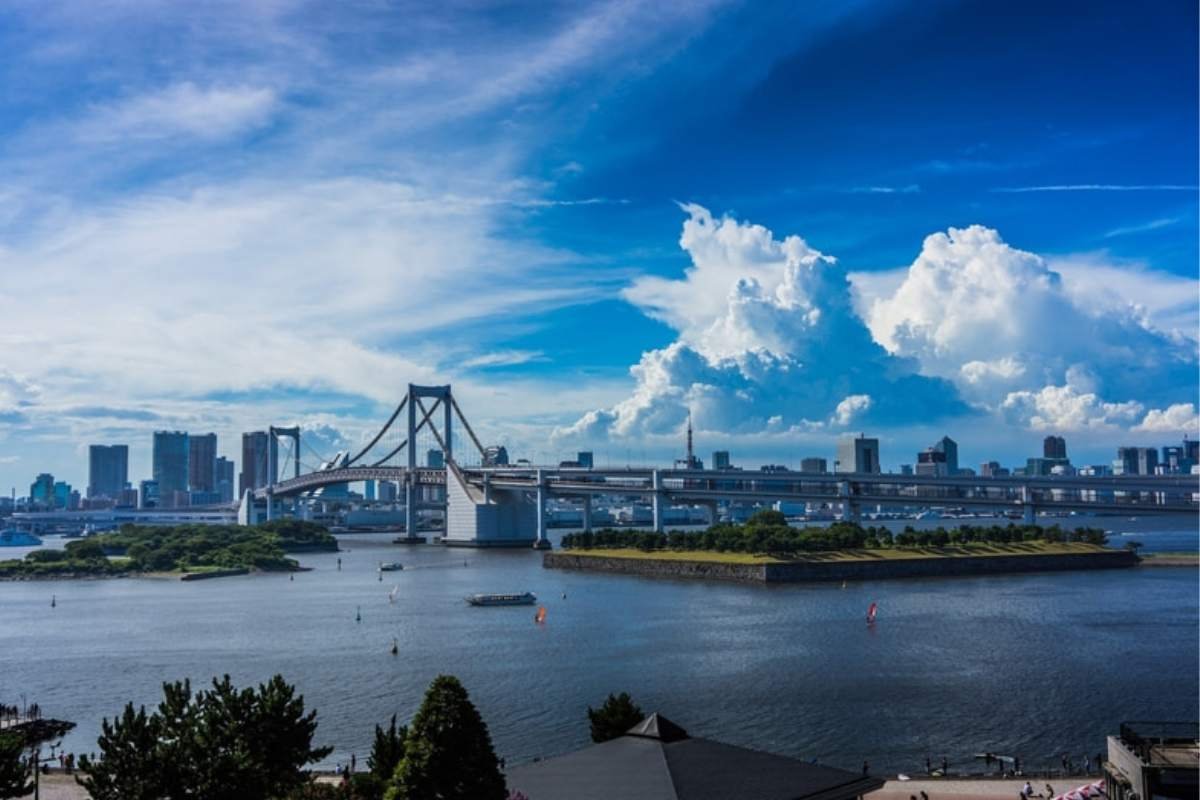
Warnings & Dangers in Tokyo
While Tokyo is considered mostly safe, it’s important to exercise the same caution you would in any major city. The city was ranked the 7th safest city in the world, and although it’s in the top 10 of the safest cities, Tokyo still has problems with petty crime, binge drinking, and harassment of women.
Most of the issues of safety faced in Tokyo are an inconvenience but not life-threatening. Regardless of the low rating, you must always remain vigilant.
Overall Travel Risk (3/10)
The overall travel risk to Tokyo is low. It’s one of Japan’s few cities with a population of 13 million people, and it is very safe to walk around even at night and travel using public transport.
Tokyo has such a low crime rate because the city has fewer societal factors that contribute to crime, like the unemployment rate and income inequality. The city is strict and does not tolerate any disturbances to public order.
Another factor that adds to Tokyo’s safety is that Japanese culture is based on respecting people and their belongings. That said, this means if you ever leave your wallet on a train or park bench, you will probably be able to get it back from the lost and found departments.
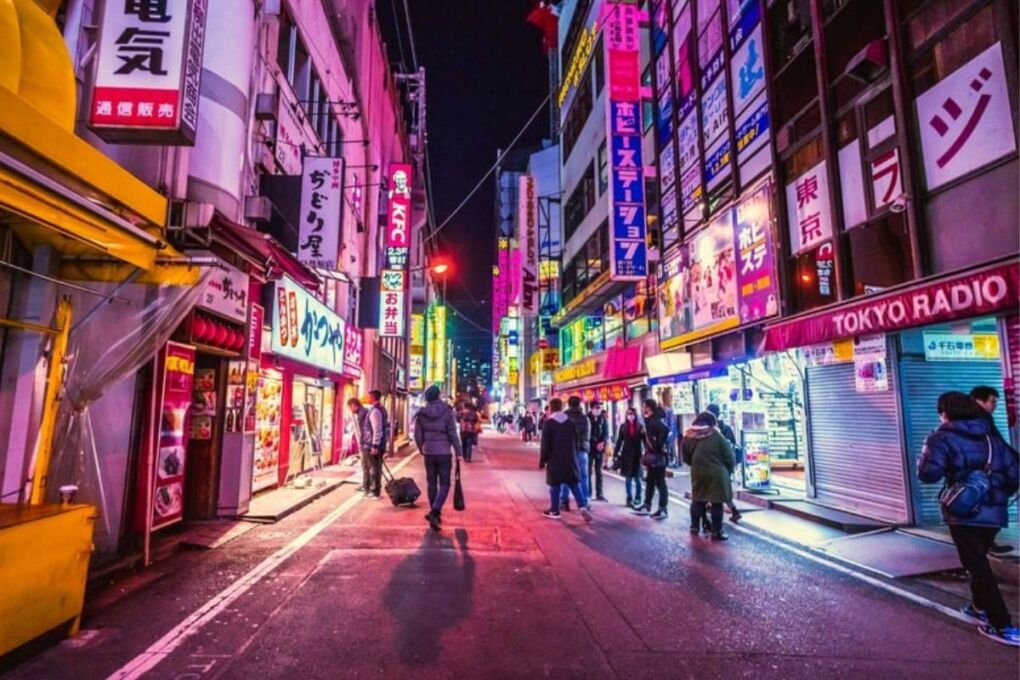
Petty Theft
Like any other major city, petty theft, including pickpocketing, can occur in Tokyo. This type of crime usually occurs in highly populated areas such as Akihabara. Popular nightlife districts, trains, and public transportation are also common targets for thieves.
It’s therefore important that, as a tourist, you remain cautious of your surroundings. However, if you become a victim of a crime, file a police report at the closest station to the incident. If local police hesitate to help you, the next best thing is to contact your embassy for assistance.
Alcohol-Related Crimes
Tokyo is a popular party destination. You need to be careful when you’re in an entertainment party area because plenty of alcohol-related crimes can occur. In some bars and nightclubs, tourists have been victims of overcharging, robbery, and even assault.
Although you want to enjoy yourself and have a good time, it is also imperative that you watch your alcohol intake. Watch your drink, as drink spiking is common for women and men.
Once your drink has been spiked and you’re incapacitated, robbers see an opportunity to run up a high tab on your credit cards. They may also take you to the ATMs and make you withdraw money.
Women Travelers
Tokyo, in general, is a safe city where most women can spend their vacation or stay journey-free. As a woman, whether you’re doing a solo trip or it’s a girl’s trip, always look after yourself and avoid going to areas that look shady, especially alone.
You might be subjected to some forms of harassment and verbal abuse in places like nightclubs and bars. You may also be a victim of inappropriate physical contact on busy subways and trains. To combat this, some subway and train lines have women-only train cars during peak hours.

Natural Disasters
Natural disasters are common in Japan. As a traveler, it’s important to familiarize yourself with the protocols for your safety.
Tokyo is likely to have volcanoes erupt, earthquakes, and tsunamis. But fear not because Japan has the world’s best quake and tsunami warning system.
Between June and October, it’s typhoon season. During this time, small storms can develop into major typhoons. Ensure that you stay informed about the latest regional weather forecasts and have emergency contact information on your body.
Tips for Staying Safe in Tokyo
Tokyo is generally considered safe, but it’s still important that you always stay aware of your surroundings and take the necessary precautions. So, we have compiled five useful safety tips for visiting Tokyo.
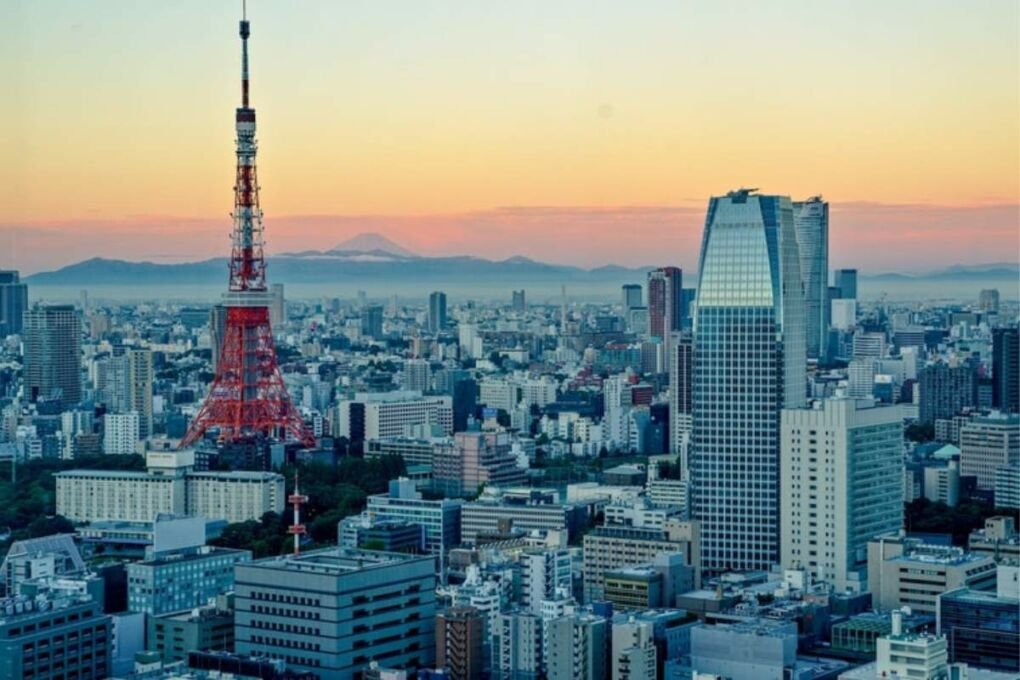
- Secure your belongings. Keep your valuables within sight. Use anti-theft accessories, and make sure to keep your bag close to your body.
- Be mindful in crowded areas. Tokyo can get very crowded, particularly in tourist areas. Be extra vigilant.
- Use reliable transportation. Thankfully, Tokyo’s public transportation system is efficient and safe. Stick to reputable modes of transportation like trains and taxis.
- Avoid overconsumption of alcohol. While Tokyo has a vibrant nightlife, it’s important to drink responsibly and be aware of your surroundings, especially if in unfamiliar areas.
- Stay informed about natural disasters. Familiarize yourself with earthquake, tsunami, and volcano safety procedures and stay updated on local advisories or warnings.
Is Tokyo Safe | Frequently Asked Questions?
Is it Safe to Walk Around Tokyo at Night?
Yes, Tokyo is safe for walking at night. The city is also safe for female solo travelers because it’s admired for its safety and friendly locals who are always willing to help.
The one thing you should worry about is missing the last train rather than getting mugged or, worse, getting kidnapped. That said, staying in well-lit and populated areas is generally a good idea — especially if you need to get more familiar with the area.
Are There Any Specific Health Concerns in Tokyo?
Tokyo has good healthcare facilities. However, travelers should have travel insurance and be aware of health advisories or vaccinations before visiting the city. Vaccine-preventable diseases such as measles, mumps, or rubella constitute a potential risk in Tokyo.
The World Health Organisation suggests that you take the following vaccines before visiting: COVID-19, hepatitis A & B, Japanese encephalitis, rabies, meningitis, polio, measles, mumps and rubella (MMR), Tdap (tetanus, diphtheria, and pertussis), chickenpox, shingles, pneumonia, and influenza.
What Safety Precautions Should I Take in Tokyo?
Ensure that you exercise normal precautions like safeguarding your belongings, being cautious of distractions, being aware of your surroundings, and following local customs. It’s also smart to know emergency contact numbers and have a basic understanding of Japanese culture.
Use the well-known ATMs that are situated in a secure area and always be cautious of suspicious-looking machines. Trust your instincts. If something doesn’t feel right, take action and seek help from local authorities.
What Should I Do In Case of An Emergency in Tokyo?
The emergency number for the police is 110. For medical emergencies and fires, dial 119. Familiarize yourself with these numbers and seek help if needed.
If you’ve been a victim of a crime or have lost something, contact the nearest police station to report the incident. In the event of an earthquake, follow the “drop, cover and hold on” protocol and then wait for further instructions from local authorities to evacuate to a safe area.
